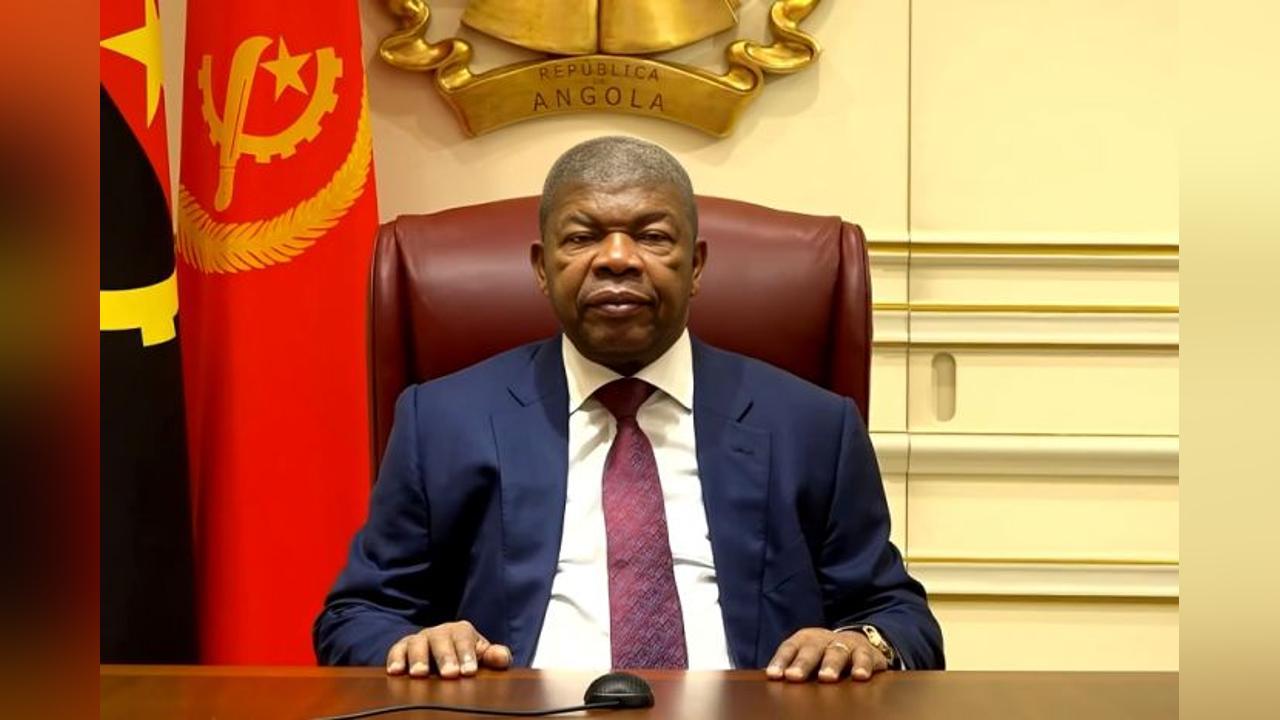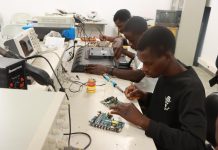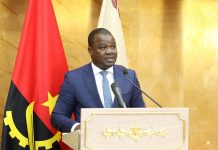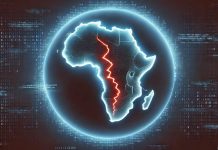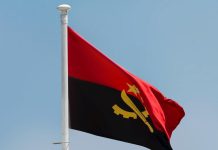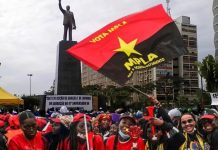By Ramiro Aleixo
Africa-Press – Angola. Almost no one knows whether the President of the Republic, João Lourenço, is, from a political and intellectual point of view, sufficiently capable of admitting that he has made very serious mistakes in managing the Nation.
Because he has not demonstrated this capacity (humility); because, at every step, he conveys an image of extreme arrogance, of being a figure who is not very social and consensual (and this has been going on for a long time); who listens little and poorly; who does not recognize that he has limits, that he cannot do everything, is not obliged, nor does he have to dominate everything; that he is a terrible example in the exercise and functioning of a democratic and legal state, and, politically, a danger to stability; because whenever he intervenes, in speeches or interviews, he generates conflicts.
The President of the Republic, João Lourenço, has thus demonstrated that he is neither cut out in character nor academic terms, nor is he prepared to hold such a high office, despite his ambition. He demonstrates a lack of energy, joy, and spontaneity in human relationships. He also lacks that characteristic and incomparable warmth of Africans, which even oozes from their pores, even in the most serene and judicious. And a nation that lived through a long period of war, ending just over two decades ago, with so many wounds still to heal, needs the influence of that energy and joy to celebrate peace, harmony, and true reconciliation, almost 50 years after Independence. And constitutionally, the President of the Republic should be that figure, that example in transmitting that spirit. But, unfortunately, he is not and has not been capable, neither in the Presidency of the Republic, nor in that of his party, transformed under his management, into a haven of subservient people who “neither sway nor grunt”, except when it comes to attacking the opposition, the only ‘service’ that is recognized as their leading role.
In short, the President we have doesn’t inspire empathy. Therefore, when his term as President of the Republic ends, I believe not even the sycophants who surround him will miss him. And most of them are probably already counting the hours and days until that happens as soon as possible, because for them, this servility may also be functioning as a prison, apart from the privileges and travel, in the post-Lourencism era. For all those he told to “take a walk,” the two years until new elections seem like an eternity.
Today, with the hopes of reforms placed in him dashed when he was appointed as a replacement by then-President José Eduardo dos Santos, we see him more likened to those African leaders who only ‘shine’ for their authoritarianism and the luxury with which they present themselves, rather than for their leadership competence in resolving the chronic problems that hinder the dignified living of their people. And it is precisely this, having arrived here, in this turbulent time of social crisis and widespread discontent, that we realize our greatest deficit: in Angola, we lack leadership. We do have a President, but this figure lacks something special defined as charisma, that “natural, extraordinary gift that brings together a set of values and skills and/or the power to charm, to seduce, that arouses the approval and sympathy of the masses for the good of the community. An irresistible authority that fascinates.” We don’t have it!
I write about this with some authority, especially because, in my professional career as a journalist, I experienced and followed both President Agostinho Neto and President José Eduardo dos Santos, both in Angola and abroad. One felt the presence of leaders and statesmen in them. Calm, serene, empathetic, despite the mistakes they made. And I also saw them emerge from the forests or emerge from colonial prisons, and I accompanied most of these MPLA leaders, once poor and now millionaires. Late into the night, I corrected hundreds of speeches that we were forced to copy from the tape recorder to paper, at a time when the Jornal de Angola and other media outlets were obliged by the dictatorship to publish all speeches by members of the MPLA Central Committee and Political Bureau, as well as ministers, in their entirety. Different contexts, it’s true, but compared to the current one, under President João Lourenço’s leadership, I easily conclude that all the members of this new generation of politicians and leaders lack the enthusiasm that was contagious, that should captivate and unite us in this time of other great challenges, around a national project. Because, almost 50 years after Independence, we don’t even know what that project is: whether it’s the MPLA’s, or the President’s, and the system that sustains it. Almost no one identifies with it, because it’s unfair; it continues to give the rich more wealth and the poor more poverty.
If you asked me where you went wrong, or rather, where you failed, I wouldn’t be ashamed or afraid to tell you that, first, it was fatal to have muzzled the media, especially the public media. It’s not that there wasn’t some ‘scumbagism’ before. But, under your administration, it was chained and thrown into the catacombs of the Palace. And society lost the outlet where it could make its contributions, vent its frustrations, and decompress. This society was literally scorned, suffocated, and replaced by a generation of agents trained by the system’s security agencies, by shameless and shameless politicians, and by some academics, co-opted to whitewash the image of the government, but above all, of President João Lourenço, practically transformed into the country’s only thinker and the new God of Angolans. An intriguing case among us and in most states, even under dictatorial and repressive regimes, in Angola, intelligence agents who should normally operate in the shadows become television commentators. Worse still, they expose themselves by attacking society, and particularly the opposition, concealing knowledge of the truth, which does not favor decision-making, and creating pockets of political and social tension. A madman’s strategy.
With this stance, Lourencist power destroyed the space for open contributions from society in addressing its own problems, which, on the other hand, should serve as a barometer of who’s in charge, measuring the desires of the general public. Even debates outside the media came to be seen as attacks on those in power and their organizers—academics, who were stifled, dismissed, and persecuted. And the environment began to function like a boiling pressure cooker. They were left with only the tainted, misleading idea that this barrier and attempt at brainwashing were effective. But the result was precisely the opposite. With the public media clamped down, society took advantage of the limited space available, especially on private radio stations, and expanded into the freedom and licentiousness of social media, also infiltrated, it must be said, by hundreds, if not thousands, of machine guns paid for by the system and spread throughout Angola and Europe. Preoccupied with the public assassination of character and the honor of those who refuse to bow to power, they were unable to properly assess what might happen. And that’s what happened in recent days. It was nothing that wasn’t predictable, given the adoption of so many serious, unpopular economic measures and the lack of dialogue.
During this period, spanning almost two terms and eight years later, we ask ourselves what else of note the President of the Republic did beyond his constitutional obligations? He committed a second, grave error. He focused excessively on projecting his image beyond our borders, under the pretext of regaining access to dollars, which he failed to achieve, and attracting foreign investment, which doesn’t justify the cost, instead of looking within with visionary eyes, where the problems lie and where solutions must also be found, with everyone’s participation. And to satisfy his ego, he took on the presidency of the African Union, now tarnished by the murders and arrests that occurred this week, seen by the world but deliberately ignored and silenced by the public media.
Had he begun, as he promised, with structural reforms in the State apparatus, investing more in the economy and human resources, spending less money on travel and luxuries for his own accommodation and presentation, including the endless renovations to the Palace, the purchase of vehicles, planes, and shows for the English to see, Angola would probably not be feeling the impact of the international crisis so much today, aggravated by Covid, which other nations, due to the competence and commitment of their leaders, do not drive their citizens to despair.
Roughly speaking, of all the Chief’s spending and extravagances, Angola must have spent over USD 3 billion, which was missed on priorities: the development of agro-industry, for example, to support, sustain, and retain families in the countryside and rural areas. Had this been done, in the country where around 1.5 million Angolans are now born each year, there would be more food and employment, because many of the unemployed young people who moved from the interior to Luanda and are exerting pressure would probably not have left their home areas. It wouldn’t be the excluded and rebellious who sell on the streets and in markets, who rob stores and bank branches, but also the peaceful citizen who works and pays his taxes. They would, possibly, also be growing corn, beans, cassava, potatoes, and coffee, earning money to support themselves.
But there was a lack of vision, a lack of leadership, and other mistakes followed, which will form the basis of our arguments in the next section. For example: between spending USD 300 million to build a Convention Center in Chicago, which will then cost millions more each year for its maintenance, what should be a priority for a country lacking abundant resources and whose population lives in poverty?
For More News And Analysis About Angola Follow Africa-Press

